|
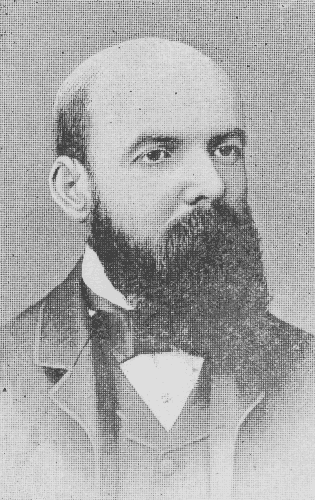
David Etchells. |
David Etchells began his career at the Darlaston
Nut & Bolt Company, eventually rising to become
the company's manager. He decided to form his
own company in 1870 at Bull Piece Works, Station
Street. The company is described as follows in a
local trade directory:
Etchells David
(established 1870), mechanical engineer &
machinist, manufacturer of engineers' bright
shaped nuts, black nuts, bright washers etc.
Also machinery for making bolts and nuts.
In 1881 the firm employed 16 men and 35 boys. David Etchells and his wife Mary, initially
lived at 1 Bull Street, by the factory, and
later at Oaken, near
Wolverhampton. David was born in Darlaston on
9th June, 1844 and educated privately. He became
a member of the Darlaston Local Board and later
Darlaston Urban District Council. He was also a
member of the Darlaston School Board for 18
years until becoming chairman in 1897. |
| His son David Henry Etchells joined the firm as
an apprentice and became a director in 1915 when
the company name was changed to David Etchells &
Sons Limited. |
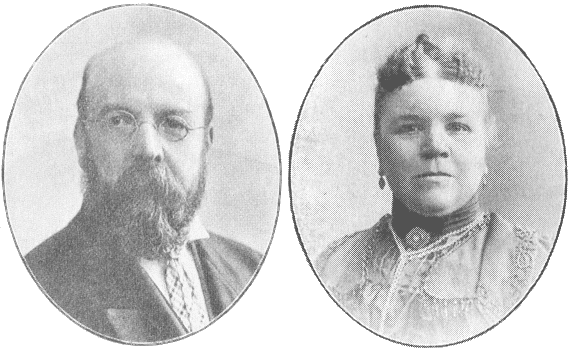
Mr. and Mrs. David Etchells. |
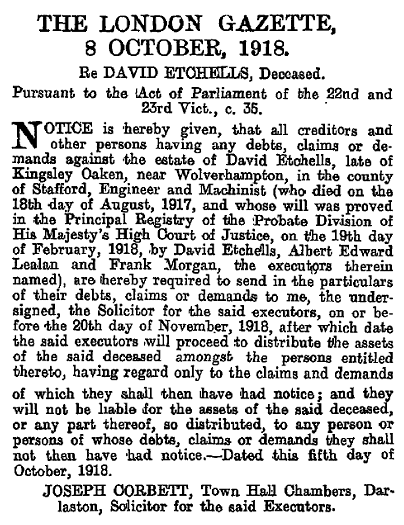 |
David Etchells died on
18th August, 1917 as can be seen from the
announcement opposite.
The family's house,
Kingsley, stood near the northern end of Oaken
Lanes, near to where Kingsley Gardens is today.
David's son, David
Henry Etchells took over the running of the
business. |
|
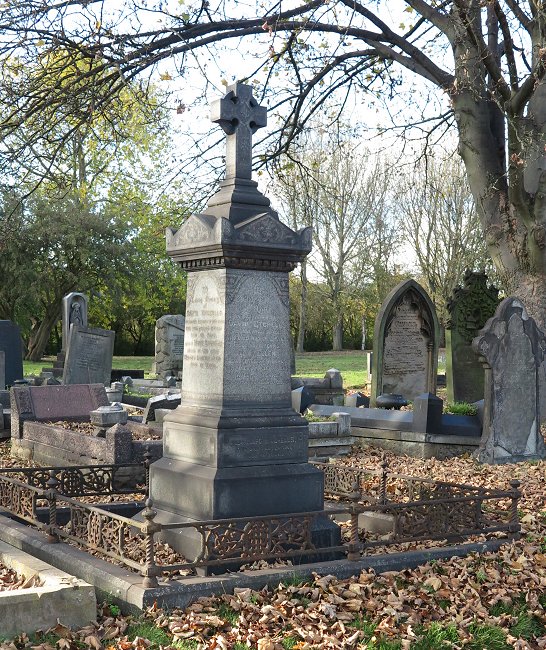
David Etchells' grave
at James Bridge Cemetery. |
|
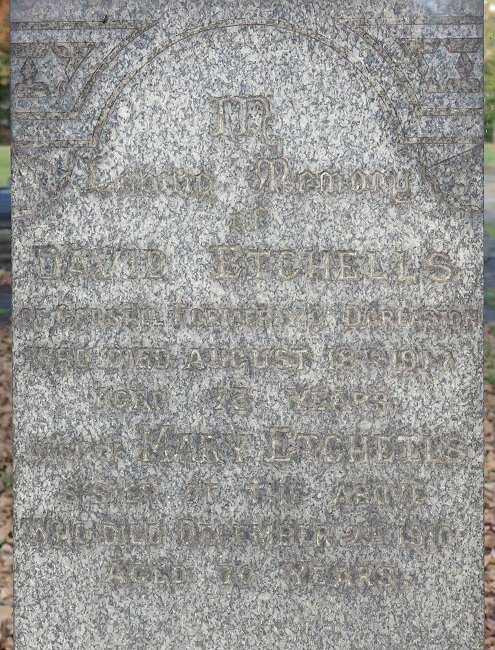
The inscription on
the front of the grave. |
The inscriptions on the grave are as
follows: In loving memory of David
Etchells of Codsall formerly of
Darlaston who died August 18th 1917 aged
73 years.
Mary Etchells sister of above who
died December 2nd 1910 aged 70 years.
In loving memory of Mary the beloved
wife of David Etchells who died March
2nd 1897 aged 58 years.
Also Ellen daughter of above who died
March 16th 1885.
Also Hope Etchells who died February
20th 1901 aged 86 years. |
|
The company specialised in forging machines
for nuts and bolts and became a successful
manufacturer. In the late 1940s Etchells decided
to expand the production of the machinery side
of the business, and so in June 1949 David
Etchells & Son Limited joined forces with long
established nut and bolt maker J. & R. Rose
Limited of London Works, Willenhall Street,
founded in 1838. J & R Rose Limited was run
by James and Richard Rose, and employed 90
people by 1881. James and his wife Eliza also
ran the Dog and Partridge pub in King Street,
where James was the licensee. |
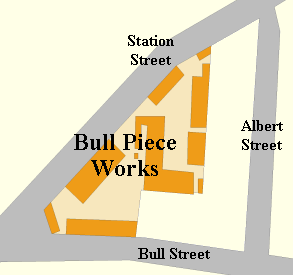 |
| In 1880 James took-on his nephew George
Rose, who started as an errand boy, then worked
his way up to Company Secretary. He worked for
the firm until his death in August 1924. |
|
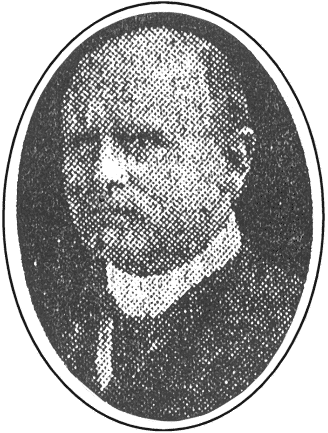
Samuel Canlett. |
He became Chairman of the Council, and will
always be associated with the park that carries
name; George Rose Park. The Managing Director
of J & R Rose Limited was Samuel Canlett, who
was born in The Swan public house in Victoria
Road, where his father was landlord.
He worked for the company for over 40 years,
until his untimely death from pneumonia in
January 1925.
In 1949, a new company, Rose and Etchells (Holdings) Limited was formed to move
Etchells' nut and bolt making section into J. &
R. Rose's site in Willenhall Street, to
free-up
space at Bull Piece Works for the production of
machinery. |
| Soon after the company's amalgamation with J. &
R. Rose Limited a new type of smokeless
oil-burner was developed for Rose's forging shop
which
became one of the company's most successful
products. It was sold by a new limited company, David Etchells
(Furnaces) limited and sold extremely well.
A
new department opened to cope with the
increasing demand, which
was run by Mr. Bill Etchells. |
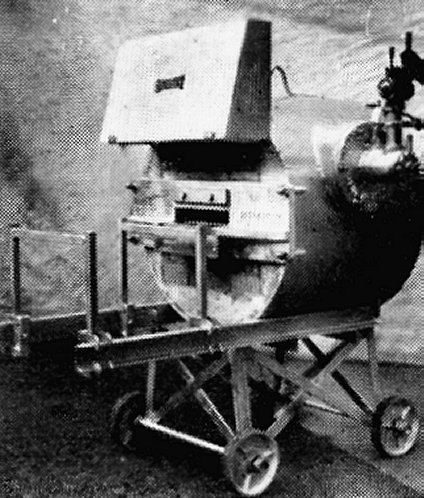
A high intensity smokeless
oil-burner. Courtesy of Christine and John Ashmore. |
|
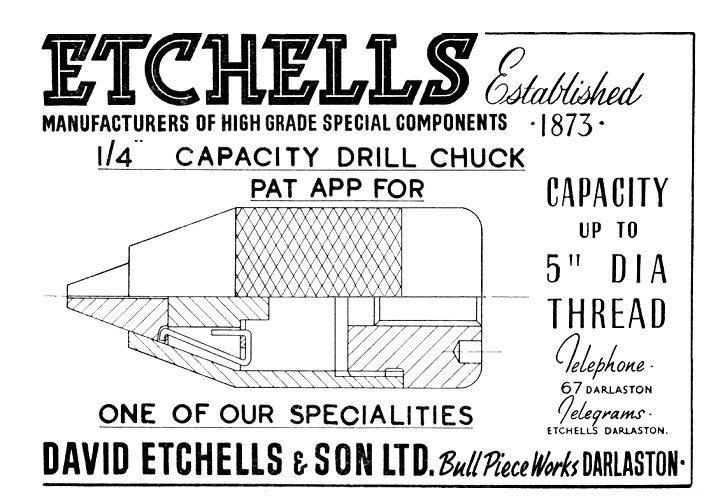
An advert from 1948. |
|
David Henry Etchells died in 1952. Within a few years J. & R. Rose Limited went into
liquidation and Etchells took over their site
and acquired land in Stafford Road for a new
factory next to London Works. A new factory and
offices were built, and the machinery department developed a whole
range of furnaces, standard and automatic heat
treatment furnaces, galvanising baths, core
drying ovens, high speed forging machines,
and an automatic shearing and pointing machine.
They were sold throughout much of the world. |
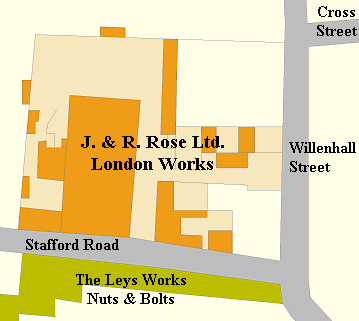 |
J. & R. Rose was
founded by James and Richard Rose.
Their most famous employee was George Rose who started in 1880 as an errand boy, and rose to the position of Company Secretary, and Company Director.
He became Chairman of Darlaston Council in 1911, and is remembered for the park that carries his name. |
| There was also a welding and fabricating
department that could produce fabrications up to
5 tons in weight. The department specialised in
fabricated machine beds, component parts,
general welding, and assembly work.
Nuts and
bolts were produced in the black bolt and nut
department, and the bright bolt and nut
department.
The technical director was Mr. David
R. Etchells, and the general manager was Mr.
Henry F. Etchells. |
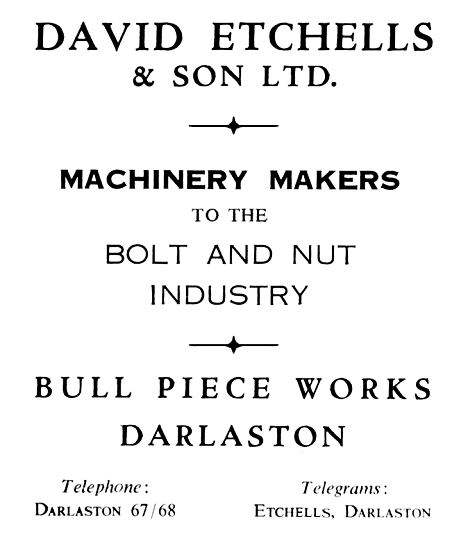
An advert from the mid
1950s. Courtesy of Christine and John Ashmore. |
|

An advert from 1966.
|
|
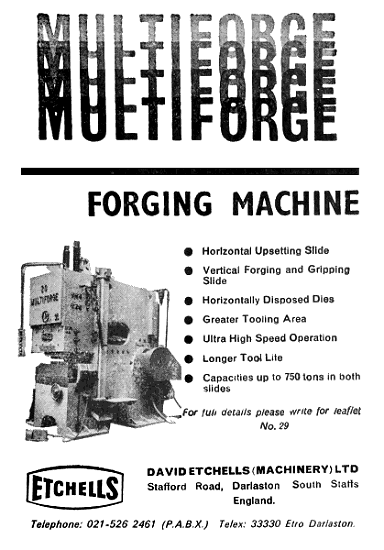
An advert from 1970. |
Mr. H. B. Maugham looked after the finances
of
J. & R. Rose, and Mr. Donald E. Etchells looked after the commercial
side of J. & R. Rose.
The chairman of the parent
company, Rose & Etchells (Holdings) Limited was
Mr. F. Rose Butler.
The original company David Etchells & Sons Limited, was
renamed David Etchells (Machinery) Limited, and in 1961
moved to the Stafford Road site, the former premises at Bull
Piece Works now being used for welding and fabrication
purposes. |
|
A new range of vertical forging presses was
added to the nut and bolt machinery, with a capacity of
up to 250 tons. After many years of development work the
range expanded to include high speed horizontal upset
forging machines under the trade name "Multiforge" with
a capacity of up to 2,000 tons. |
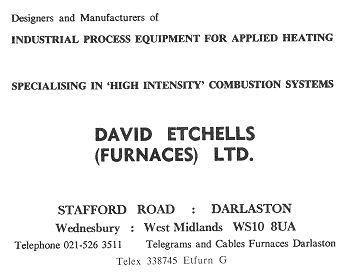
An advert from 1977. |
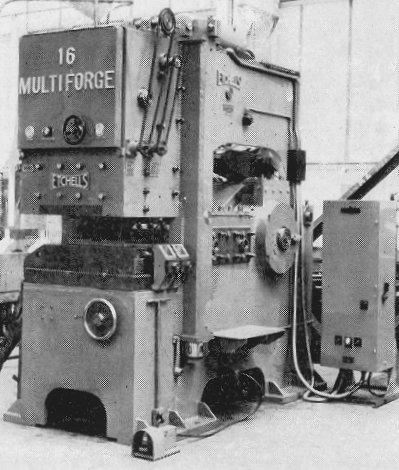 |
The business was run by four brothers, the grandsons
of the founder David Etchells and had a world-wide
market with up to 50% of the machinery and 20% of the
furnace equipment sold abroad. The company started
trading under the name of Etchells Machinery Limited but
ran into problems in the late 1960s when they opened a
new factory in Wales using Government subsidies.
The new factory was built in an area without a local
skilled workforce. Every new employee had to be trained,
which was an expensive business in itself. In Darlaston there were many local factories
which provided specialised services to the
company, such as plating etc. There was no such
infra structure in Wales and so components had
to be transported to and from Wales during
production. |
|
The venture failed due to excessive running
costs, and within a few years Etchells found
itself in financial difficulties. The company
went out of the Etchells family's control in the
late 1960s. David Etchells (Furnaces) Limited
went into liquidation in February, 1984, as can
be seen from the announcement below. |
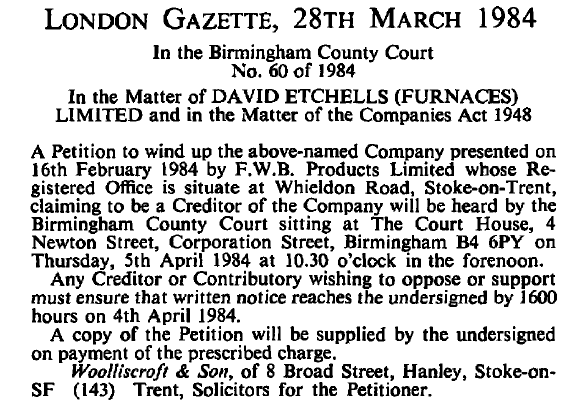
| The remainder of the firm struggled on until finally going
into liquidation in 2004. Much of the site has
since been acquired for housing. A sad end to
such an important local company. |
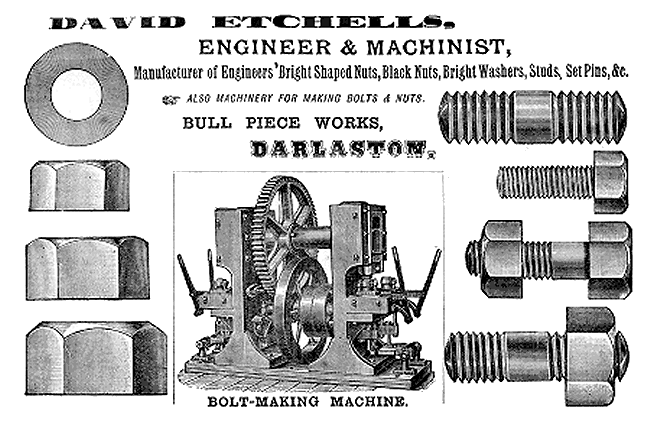
An advert from 1884.
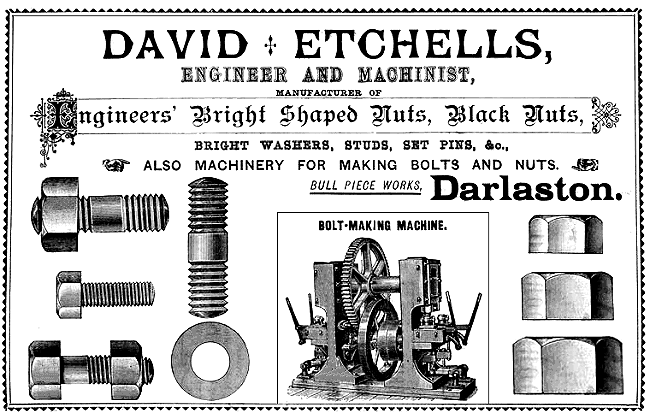
Another advert from 1884.
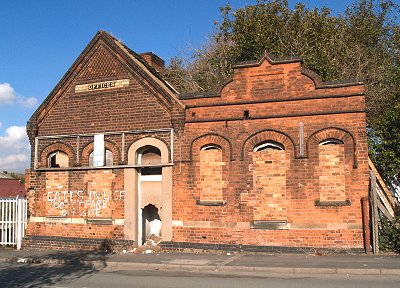 |
All that remained of London
Works in October 2007 was the old office building in
Stafford Road.
As you can see it is derelict
and badly vandalised. The roof is long gone. |
| A side view of the old London
Works office building, sitting in the middle of a
derelict area. Sadly the
building was demolished a few years ago. |
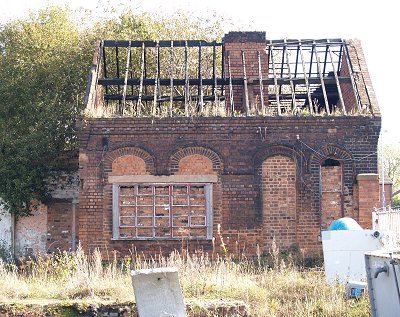 |
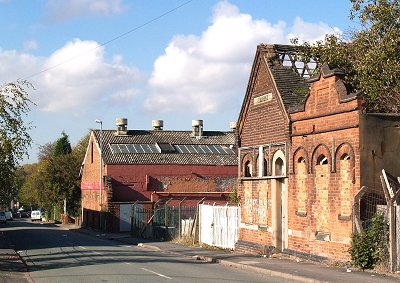 |
A view looking down Stafford
Road in 2007. The factory building in the centre would
almost certainly have been the main building from London
Works, which has been extensively modified throughout
the years. |
| The view in the opposite
direction looking towards Willenhall Street.
The outline of the old London
Works factory windows is quite clear in the end wall. |
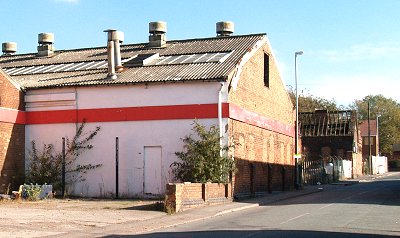 |
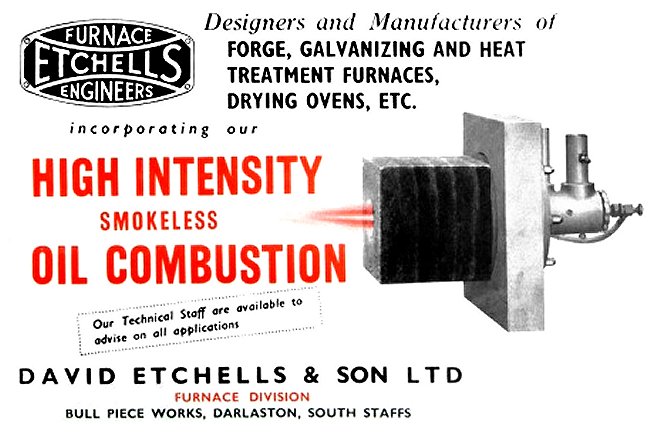
An advert from the late 1950s.
 |
Return to
the
previous page |
|